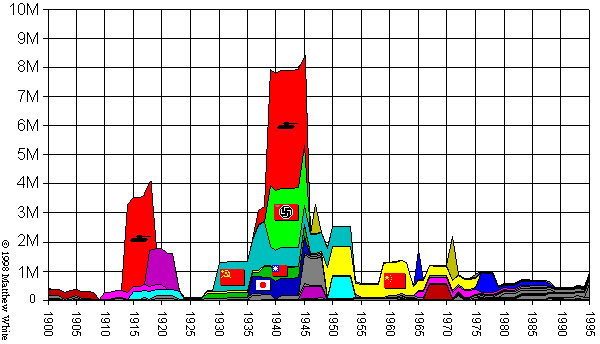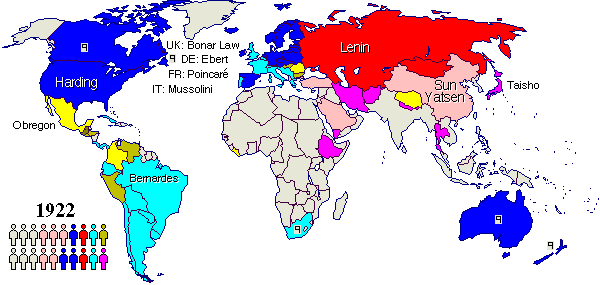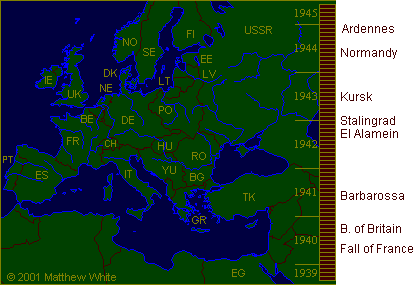- 12 Dec 2009 22:25
#13265369

I often wish people were more self-conscious about the sources of their own knowledge. Because, there is very little that a human being can hope to understand in the course of his life. Essentially, our knowledge is limited two sources.
a) Personal experience: This often leads to practical understanding of how to do something or expertise on a particular situation. However, our point of a view is only that of one seventh of a billionth of the whole of humanity, and we are necessarily ignorant of everything else that occurs beyond our horizon (cheap travel notwithstanding), all those professions we have not practiced. This form of knowledge is also liable to not be systematic or put in a wider theoretical context.
b) “Text”: In fact, our understanding of everything beyond our immediate experience (which is to say, the entire world) is mediated. An event occurs or an idea emerges, another human being records it, and he might relay it to you. This can be in the form of spoken conversation (necessarily a limited audience), the written word (the classic form) or the various forms of media that have emerged (film, radio).
So, while knowledge of one’s life is known through personal experience, knowledge of the wider world (that is, the world shared by others) is known through text. I then have little time for those who have contempt for text, for informing oneself, who insist on being opinionated all the same. The right to have an opinion is directly proportional to the time and effort one has taken to inform oneself, to make that opinion. Otherwise, one doesn’t know shit from shinola.
It is in this spirit that I’ve started this blog post series. It is not always easy or obvious how to find the right text, how to interpret it. All political text – text dealing with who pays what, who gets what, how we live, who will live, who will die – is inherently contested. A tank is merely the crudest form of power. Much more sophisticated, and often more effective, is the ability to shape perceptions, to determine reality. Hence why when one goes to particularly controversial flashpoints in the world (Rwanda, former Yugoslavia, Israel-Palestine) one finds even the most basic facts are wholly contested by the participants (including those who might intervene from the outside). So I am establishing this series, to inform people about basic, uncontested facts, to allow them to reach experts of various kinds, to come into contact with different points of view.
So much for epistemology. I start with Matthew White's Historical Atlas of the Twentieth Century. Not updated in 6 years, featuring a functional and ugly main page, it is an excellent starting point to learning about history and politics.

The centerpiece of the website is a series of decade by decade maps showing the form political government of the entire world. One gets a view of the two eras of globalization – that of colonial empires to that of neoliberalism – with all upheaval of totalitarianism and national liberation in between. There is even a overview of the whole political century in one graph, by showing what percentage of the world was governed by what, essentially the story of the end of colonialism, the rise of the People’s Republic of China, and the triumph of liberal democracy.
In presenting us this information, White gives us his methodology and sources. The guiding philosophy is simplicity and functionality. In the process he give us a useful course in basic political science. The forms of government are defined. We also get a sense of American political science literature and its controversies in particular, most notably the question of whether “democracies” wage war on each other. Here the discipline, in its aspiration to being true science, comes across as pedantic and obsessed with technicalities (Is a nation a “democracy” for these purposes only when women vote? How many deaths make a war?). It, however, provides a good groundwork for basic understanding of governments and controversial claims that remain important to this day. today.
A second benefit comes from the broad perspective one gains by reading the Historical Atlas. The first most important thing one can learn about something is precisely how important that thing is. That is not something you will necessarily get, however, by reading a book on that subject. (If you only read one biography, your opinion of who was more influential in achieving the goals of the American Civil Rights Movement will likely be determined by whether you read about Lyndon Johnson or Martin Luther King, Jr.). The relative prominence of various forms of government is made apparent apparent (that, for instance, “democracy” is a distinctly minoritarian experience until long after the two World Wars that were fought in its name) as are all the wars and mass killings of the century. It is rather clinical overview of so much death and gore, but it is ultimately useful exercise. We not get a sense of the relative importance of various conflicts but also a lesson in the difficulty in assessing casualties in war, given the contested subject, and often the lack records. And while there is a page dedicated to the most important person of the twentieth century (guess who), there is more unconventional and very interesting one on overrated people and events, which give us a solid list of the things that have dominated American historical thought but also media.

It can some time to get through the Atlas as a whole. The inquiring mind can find somewhat more detailed looks through maps (sometimes animated) of specific subjects like the Second World War, Korea, or the Israeli-Arab conflict. One also finds useful snapshots of the world, particularly Europe, the Europe of Empires, Interwar Europe, Fascist Europe, to Cold War Europe and beyond. It is not all war and politics, although they form the bulk. One can also find information on the innovations and changes that really affected people’s daily lives, from urbanization and the spread of the telephone, to the spread of literacy and the decline of agriculture. White is evidently a big fan of trivia, and there is a good deal of pages on various subjects from Nobel Prize and Olympic Game winners to the century's best novels and works of art.
The Historical Atlas is an essential starting point for every politicized, opinionated fifteen year-old who has found himself on the internet (and some older people too). It provides an excellent introduction to the century’s history, concepts important to it, and the relative importance of the great events that took place in it. Distinctly American in its voice and interests, it is the successful product of a hobby that to some degree overcomes its parochialism, and even, its Eurocentricity. And, if we cannot transcend the subjectivity our origins, we can be aware of it.

I often wish people were more self-conscious about the sources of their own knowledge. Because, there is very little that a human being can hope to understand in the course of his life. Essentially, our knowledge is limited two sources.
a) Personal experience: This often leads to practical understanding of how to do something or expertise on a particular situation. However, our point of a view is only that of one seventh of a billionth of the whole of humanity, and we are necessarily ignorant of everything else that occurs beyond our horizon (cheap travel notwithstanding), all those professions we have not practiced. This form of knowledge is also liable to not be systematic or put in a wider theoretical context.
b) “Text”: In fact, our understanding of everything beyond our immediate experience (which is to say, the entire world) is mediated. An event occurs or an idea emerges, another human being records it, and he might relay it to you. This can be in the form of spoken conversation (necessarily a limited audience), the written word (the classic form) or the various forms of media that have emerged (film, radio).
So, while knowledge of one’s life is known through personal experience, knowledge of the wider world (that is, the world shared by others) is known through text. I then have little time for those who have contempt for text, for informing oneself, who insist on being opinionated all the same. The right to have an opinion is directly proportional to the time and effort one has taken to inform oneself, to make that opinion. Otherwise, one doesn’t know shit from shinola.
It is in this spirit that I’ve started this blog post series. It is not always easy or obvious how to find the right text, how to interpret it. All political text – text dealing with who pays what, who gets what, how we live, who will live, who will die – is inherently contested. A tank is merely the crudest form of power. Much more sophisticated, and often more effective, is the ability to shape perceptions, to determine reality. Hence why when one goes to particularly controversial flashpoints in the world (Rwanda, former Yugoslavia, Israel-Palestine) one finds even the most basic facts are wholly contested by the participants (including those who might intervene from the outside). So I am establishing this series, to inform people about basic, uncontested facts, to allow them to reach experts of various kinds, to come into contact with different points of view.
So much for epistemology. I start with Matthew White's Historical Atlas of the Twentieth Century. Not updated in 6 years, featuring a functional and ugly main page, it is an excellent starting point to learning about history and politics.

The centerpiece of the website is a series of decade by decade maps showing the form political government of the entire world. One gets a view of the two eras of globalization – that of colonial empires to that of neoliberalism – with all upheaval of totalitarianism and national liberation in between. There is even a overview of the whole political century in one graph, by showing what percentage of the world was governed by what, essentially the story of the end of colonialism, the rise of the People’s Republic of China, and the triumph of liberal democracy.
In presenting us this information, White gives us his methodology and sources. The guiding philosophy is simplicity and functionality. In the process he give us a useful course in basic political science. The forms of government are defined. We also get a sense of American political science literature and its controversies in particular, most notably the question of whether “democracies” wage war on each other. Here the discipline, in its aspiration to being true science, comes across as pedantic and obsessed with technicalities (Is a nation a “democracy” for these purposes only when women vote? How many deaths make a war?). It, however, provides a good groundwork for basic understanding of governments and controversial claims that remain important to this day. today.
A second benefit comes from the broad perspective one gains by reading the Historical Atlas. The first most important thing one can learn about something is precisely how important that thing is. That is not something you will necessarily get, however, by reading a book on that subject. (If you only read one biography, your opinion of who was more influential in achieving the goals of the American Civil Rights Movement will likely be determined by whether you read about Lyndon Johnson or Martin Luther King, Jr.). The relative prominence of various forms of government is made apparent apparent (that, for instance, “democracy” is a distinctly minoritarian experience until long after the two World Wars that were fought in its name) as are all the wars and mass killings of the century. It is rather clinical overview of so much death and gore, but it is ultimately useful exercise. We not get a sense of the relative importance of various conflicts but also a lesson in the difficulty in assessing casualties in war, given the contested subject, and often the lack records. And while there is a page dedicated to the most important person of the twentieth century (guess who), there is more unconventional and very interesting one on overrated people and events, which give us a solid list of the things that have dominated American historical thought but also media.

It can some time to get through the Atlas as a whole. The inquiring mind can find somewhat more detailed looks through maps (sometimes animated) of specific subjects like the Second World War, Korea, or the Israeli-Arab conflict. One also finds useful snapshots of the world, particularly Europe, the Europe of Empires, Interwar Europe, Fascist Europe, to Cold War Europe and beyond. It is not all war and politics, although they form the bulk. One can also find information on the innovations and changes that really affected people’s daily lives, from urbanization and the spread of the telephone, to the spread of literacy and the decline of agriculture. White is evidently a big fan of trivia, and there is a good deal of pages on various subjects from Nobel Prize and Olympic Game winners to the century's best novels and works of art.
The Historical Atlas is an essential starting point for every politicized, opinionated fifteen year-old who has found himself on the internet (and some older people too). It provides an excellent introduction to the century’s history, concepts important to it, and the relative importance of the great events that took place in it. Distinctly American in its voice and interests, it is the successful product of a hobby that to some degree overcomes its parochialism, and even, its Eurocentricity. And, if we cannot transcend the subjectivity our origins, we can be aware of it.
A stubborn porcupine: heredity & nationhood. Meditate, brother!
« Artists are the antennae of the race. »
« Artists are the antennae of the race. »





 - By Fasces
- By Fasces - By JohnRawls
- By JohnRawls